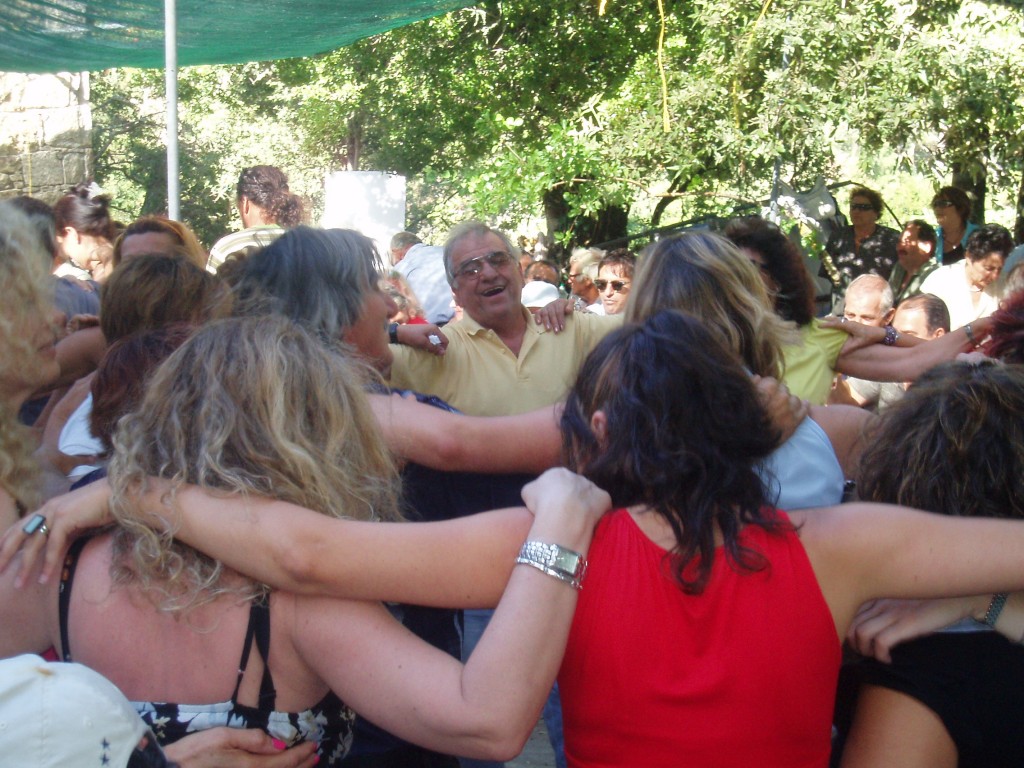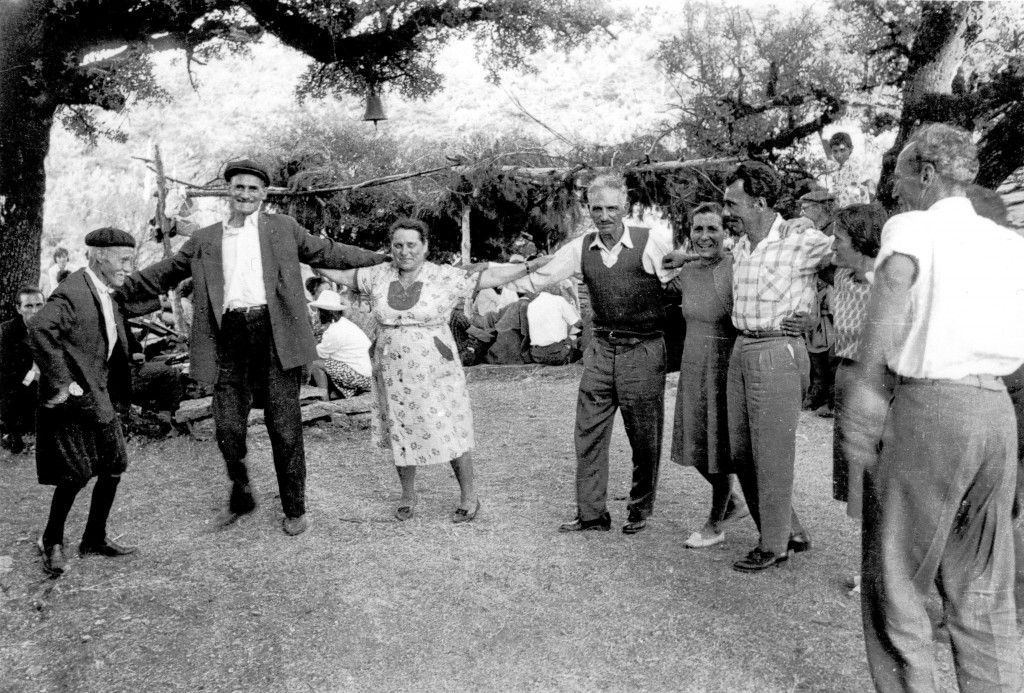Everyone sticks together and dances

The biggest of all festivals are the Panigyria, where every village celebrates its patron saint once a year.
“The day before, believers flock to the church from all the surrounding villages, even from the far-flung villages, for evening mass. They came on foot, barefoot, some had been walking for hours. They carried their good shoes in their hands so that they would not slip through the rocky path would be ruined, they would then wash at the well (Katharsi) and only put on their shoes in front of the church. Everyone, including the priests of the other communities, would come together for the common mass and the subsequent vigil. The next day, on the actual name day of the patron saint, The liturgy was celebrated in the morning. Then the festival began. The musicians began with the so-called “European” dances, such as the Waltz, Tango and Fox Anglais. This was followed by the island dances such as Syrtos, Balos, Kalamatianos and Sousta. And then the Ikariotiko was played. The Ikariotiko could last up to an hour until people were in a trance.”
Ownership, division of labor and barter
In Ikaria everyone always owned more or less the same amount. There were no large landowners. Everyone had their own farm and their inherited land and for this reason there were no foreign workers or no dowry upon marriage. If someone needed support, for example to build a house, build terraces or bring in a harvest, he would call his relatives and neighbors, who would then repay the favor with his own work if necessary. This type of division of labor was called “Allaksa” – exchange since ancient times. Money was rarely used in Ikaria, as all debts could be paid off with food, commodities or hours of work.

Photo: Archives of Christos Malachias
From 1960 to today
In the 1970s, a time of great poverty, the old church administrations were transformed into village interest groups in order to support the desperately poor small communities. They gathered all their relatives and acquaintances and transformed the village festivals (panigyria) from simple church festivals into a way of financially supporting the village community.
For the first time, visitors (those who could) paid the Panigyria with money. The income was then used for a charitable purpose – road network, water supply, village squares, harbors, all of these are achievements from the collected funds and the voluntary work of the residents.
That’s how it is still done today. The Panigyris serve the village community and everyone helps voluntarily. Even the patron saints of the respective villages generously tolerate the fact that their name day, and thus the festival, is moved to the summer months, the time of the many visitors, for financial reasons, and as a result the small community enjoys greater profits. The village’s taverns close on the day of the festival in solidarity with the festival. The food and wine are ultimately sold for a good cause, this supports the village treasury, this applies equally to everyone, locals and tourists alike!
Particularly current again since the beginning of the economic crisis in 2009. No support can be expected from the state. Everyone sticks together and dances. What is impressive is that the Ikariotes’ passion and joy for life continue to manifest themselves at the dance festivals.
These in turn reflect a local civilization that has developed a strong social network over the centuries, the foundation of which is based on community consciousness, alternative social economy and anti-consumer lifestyle.
Would you like to dance along, but don't have the courage?
I’m looking forward to your comment!
Have you ever been to a Greek festival and admired the exuberant dancing crowd? Write us your experiences in the comments…
